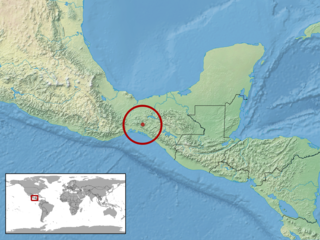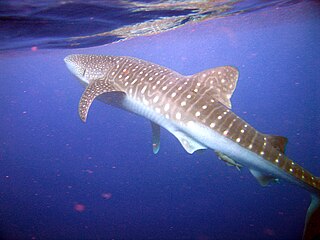
Corytophanidae is a family of iguanian lizards, also called casquehead lizards or helmeted lizards, endemic to the New World. Nine species of casquehead lizards from three genera are recognized.

The Iguanidae is a family of lizards composed of the iguanas, chuckwallas, and their prehistoric relatives, including the widespread green iguana.

Laemanctus is a genus of lizards in the family Corytophanidae. Species in the genus Laemanctus are commonly referred to as conehead lizards or casquehead iguanas. The genus is endemic to Central America.

The Mexican blind lizard is a species of legless lizard in the family Dibamidae, and the only species in the genus Anelytropsis. It is endemic to Mexico. They look like Amphisbaenia, but are in fact, only distantly related.

Arend Friedrich August Wiegmann was a German zoologist and herpetologist born in Braunschweig.

The eastern casquehead iguana is a species of lizard in the family Corytophanidae. The species is native to Mexico and Central America.

Wiegmann's tree lizard is a species of lizard in the family Leiosauridae. The species is endemic to South America.

Ctenosaura similis, commonly known as the black iguana or black spiny-tailed iguana, is a lizard native to Mexico and Central America. It has been reported in some Colombian islands in the Caribbean Sea and Pacific Ocean, and has been introduced to the United States in the state of Florida. It is the largest species in the genus Ctenosaura. They are typically found in areas such as grasslands and forests.
Kenneth Lee Williams was an American herpetologist and author of books on the subject of snake biology and classification. Williams retired from teaching in Northwestern State University's biology department and received emeritus status in 2001. Williams is considered an authority on the milk snake and the herpetology of the Honduran Cloud Forest.

Abronia ornelasi, Ornelas's arboreal alligator lizard or Cerro Baul alligator lizard, is a species of arboreal alligator lizard in the family Anguidae. The species, which was originally described in 1984 by Jonathan A. Campbell, is endemic to southern Mexico.
Agkistrodon howardgloydi is a species of venomous snake, a pit viper (Crotalinae), that is endemic to Central America. It is most commonly called castellana,but it has also been called the southern cantil, Gloyd's moccasin, and a number of other colloquial names. It is a rare species with a relatively small geographic distribution in the tropical dry forest on the Pacific coast of Honduras, Nicaragua, and extreme northwest Costa Rica. Agkistrodon howardgloydi is a stout, medium-sized snake with a maximum length of 96 cm. It is a viviparous species, with female giving birth in the rainy season from May to August. No clinical reports on envenomation had been published, but laboratory texts and analysis indicate the venom is highly toxic and similar to its close relative Agkistrodon bilineatus, and potentially lethal.

The venerable collared lizard is a species of lizard in the genus Crotaphytus in the family Crotaphytidae. The species is native to northern Mexico.

The flora and fauna of Honduras reflects the country's geographical location inside the tropics. This has allowed for diverse species of plants and animals to be adapted, but some of them are now in danger of extinction. This has posed the Honduran government, offices and nature organizations to look after the protection of the local environment, like the creation of nature reserves.
Dunn's least gecko is a species of lizard in the family Sphaerodactylidae. The species is endemic to Honduras.
Sphaerodactylus leonardovaldesi is a species of lizard in the family Sphaerodactylidae. The species is endemic to the island of Roatán in Honduras.

The Bay Island least gecko is a species of lizard in the family Sphaerodactylidae. The species is endemic to the Bay Islands in Honduras.

Laemanctus serratus, also known commonly as the serrated casquehead iguana, is a species of lizard in the family Corytophanidae. The species is native to southeastern Mexico and Central America. There are two recognized subspecies.
Laemanctus waltersi, also known commonly as Walters' casquehead iguana or Walters's casquehead iguana, is a species of lizard in the family Corytophanidae. The species is endemic to Honduras.












